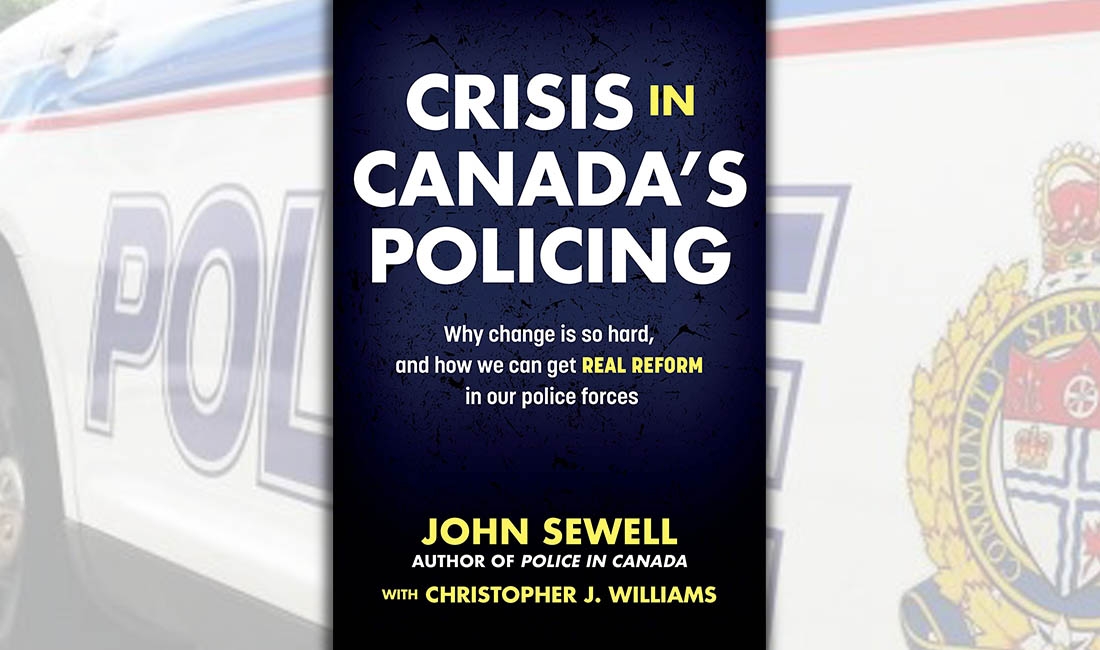
Book review: Crisis in Canada’s policing
John Sewell knows a thing or two about policing. The 81-year-old former mayor of Toronto (1978-1980) has been involved in social justice efforts since the mid-1960s. His latest book “Crisis in Canada’s Policing: Why real change is so hard, and how we can get real reform in our police forces” is a tell-all analysis of policing in Canada.
When elected mayor of Toronto, one of the first issues that he faced was police misconduct: the Toronto Police at the time had been persecuting patrons of gay clubs; they charged a Toronto gay newspaper for obscenity; that year, of the eight individuals who died at the hands of police, four were mentally ill.
Sewell sought to reform the broken system only to be demonized by the Toronto Police department and the right-wing media in the city. Forty-plus years later, he firmly believes policing still needs to change: “There are myriad reasons why it is so difficult to change policing: police culture, including solidarity among officers carried to an unreasonable level; systemic racism and sexism; excessive use of force; the power police associations hold to protect officers from any criticism; lax reporting requirements and ineffective discipline. These problems are not addressed by weak management, weak governance and ineffective oversight, but these hurdles must be overcome if we are to make the changes in policing.”
The book offers insight into the problems with racism, sexism, use of force, and accountability in Canadian policing at every level—from the everyday police officer to the government officials that often allow or are unable to stop the dysfunction.
Countless studies are listed including how police are more likely to discriminate against racialized groups through practices such as carding, how police resources are often used for intervention in non-criminal mental health matters, and how police forces do not adequately handle internal sexual assault/sexual misconduct against female officers with the required level of seriousness and professionalism.
Sewell discusses why so few police officers are convicted or even charged after misconduct complaints are filed by explaining how the SIU operations are often corrupted or compromised in ways that the public may not be aware of. For example, police officers under investigation often will not turn in notes or will refuse interviews because it interferes with their right not to incriminate themselves.
Other challenges to the standard line of police departments are thought-provoking. Citing a Kansas City report on police presence in the community in relation to the overall crime rate, he shows that more police officers on the street do not equal better public safety.
The final chapter lays down several possible reforms that can return policing to a trusted service for the citizen rather than a paramilitary force that has alienated itself from the citizenry and made itself far more immune to consequence than other public services.
Sewell believes that disarming large segments of the police and educating them in de-escalation skills will help to regain public trust. Citizens may once again be able to seek police assistance knowing they won’t face lethal force. Sewell also recommends pre-charge screening so that prosecutors, not officers, charge individuals in some cases. In addition, he suggests that police service boards, who the police answer to, be heavily modified to represent the community as a whole, including the minority groups within them.
Examples of drastic police reforms that have worked are given, such as when the city of Camden disbanded and then reformed its police department. It de-emphasized the thin-blue-line culture and approached crime with a more communal philosophy.
“Crisis In Canada’s Policing” is for those who want to learn more about modern policing in Canada, for the activist or organizer who wants a top-down view of the entire law enforcement system in this country, or for the politician who wants to get serious about real change.
Even if your views on policing don’t align with his, Sewell brings an informed perspective based on experience, data, and vigorous study that make the book worth reading.
“Crisis In Canada’s Policing” is available on Amazon










